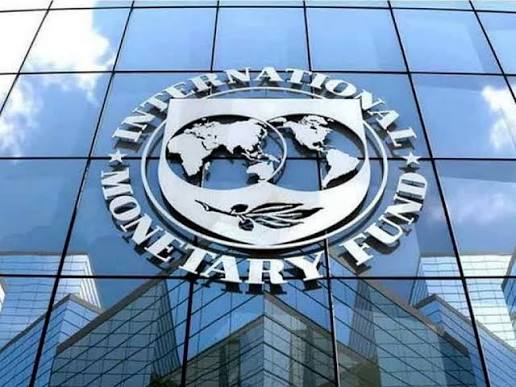
Samuel Omang
The International Monetary Fund (IMF) has revealed that Nigeria is not among Africa’s fastest-growing economies, as countries such as Benin Republic, Côte d’Ivoire, Ethiopia, Rwanda, and Uganda continue to lead the continent’s growth trajectory. The IMF said these five countries are now among the world’s fastest-expanding economies, buoyed by sustained policy reforms, improved fiscal management, and investments in infrastructure and manufacturing.
The Director of the IMF’s African Department, Abebe Selassie, disclosed this during the launch of Sub-Saharan Africa’s latest Regional Economic Outlook at a press briefing on Friday. He noted that the five countries are among the world’s top-performing economies, attributing their success to fiscal reforms and macroeconomic stability. Overall growth in Sub-Saharan Africa is projected to stabilise at 4.1 per cent in 2025, with a modest pick-up expected in 2026, powered by macro stabilisation and reform efforts in key economies.
Selassie explained that although Sub-Saharan Africa’s economic growth remains steady at 4.1 per cent, global headwinds—such as weaker demand, softer commodity prices, and tighter financial markets—continue to challenge recovery. He said that while several African countries have shown resilience, many resource-dependent and conflict-affected nations are still struggling with modest gains in per capita income. He further observed that oil prices are declining, while the prices of copper, coffee, and gold remain relatively elevated.
Despite the IMF’s recent upward revision of Nigeria’s growth forecast—now projected to expand by 3.9 per cent in 2025—the country did not make the list of Africa’s fastest-growing economies. The Fund noted that Nigeria’s growth, though improving due to higher oil output, investor confidence, and a supportive fiscal policy, still falls short of its potential. The National Bureau of Statistics had reported a GDP growth of 4.23 per cent in the second quarter of 2025, up from 3.48 per cent in 2024, reflecting modest gains in oil and non-oil sectors.
However, the IMF stressed that Nigeria must deepen structural reforms, improve electricity supply, curb inflation, and expand non-oil revenue through industrial diversification and effective tax administration. Selassie warned that growing reliance on domestic borrowing poses a risk to financial stability, as many African governments now depend heavily on domestic banks to finance spending. He described this as a “sovereign-bank nexus” that could strain banks’ balance sheets, especially in countries with high debt levels and rising interest rates.
The IMF identified two broad policy priorities for African governments: domestic revenue mobilisation and improved debt management. Selassie advised countries to modernise tax systems through digitalisation, streamline inefficient tax expenditures, strengthen enforcement, and build public trust in tax institutions. He added that since 2020, the IMF had disbursed nearly $69 billion to African nations, including $4 billion so far in 2025, and continues to provide technical assistance and capacity development.
On inflation, Selassie said that while regional inflation has eased, it remains stubbornly high in several countries, including Nigeria. He attributed the decline in Nigeria’s inflation to tighter monetary policy and a more flexible exchange rate regime but cautioned that prices have adjusted to higher levels, requiring continued policy discipline. He also noted that about 20 African countries are at high risk of debt distress, underscoring the need for fiscal prudence and regulatory oversight to prevent banking sector instability.
The IMF further warned that Sub-Saharan Africa’s recovery is under pressure from weaker global demand, volatile commodity prices, and tighter global financial conditions. Although some countries like Kenya and Angola have regained access to international capital markets, the Fund said that tariff increases from the U.S. and the expiry of trade preferences such as AGOA threaten growth prospects. The decline in foreign aid also limits fiscal flexibility for low-income and fragile states.
Selassie highlighted the importance of tackling illicit financial flows, which include trade mis-invoicing, capital flight, tax evasion, and corruption-related transactions. He urged African countries to identify the sources of such flows and implement reforms that address their root causes. He added that while borrowing conditions have slightly improved, external loans remain expensive and must be approached cautiously within sound fiscal frameworks.
Despite these challenges, the IMF commended Nigeria’s recent fiscal and monetary reforms, describing the country’s policy direction as “broadly positive.” Officials from the IMF’s Fiscal Affairs Department and Monetary and Capital Markets Department, speaking at the 2025 IMF/World Bank Annual Meetings in Washington, DC, praised Nigeria for achieving a neutral fiscal stance—balancing spending and taxation in a way that supports monetary efforts to reduce inflation. Davide Furceri, Division Chief at the IMF, said this policy stance helps to stabilise inflation while sustaining growth. He acknowledged Nigeria’s progress in tax administration and public expenditure efficiency, noting reforms that have simplified tax codes, reduced burdens on businesses, and improved fiscal discipline.
Furceri added that Nigeria could accelerate growth by improving the efficiency of public spending, especially through greater investment in social protection for vulnerable groups. Presenting the Global Financial Stability Report, the IMF’s Director of Monetary and Capital Markets, Tobias Adrian, said Nigeria’s recent exchange rate adjustments and tighter monetary policy had improved policy credibility and strengthened external buffers. He stated that a flexible exchange rate helps cushion the economy from external shocks and restore balance in the foreign exchange market.
Jason Wu, Assistant Director at the IMF, observed that Nigeria’s revenue collection has strengthened, transparency in FX reserves has improved, and inflation has dropped from over 30 per cent to 23 per cent in one year. He said these developments indicate a positive trajectory for the Nigerian economy. However, the IMF cautioned that Sub-Saharan Africa still faces risks from potential capital flow volatility, which could destabilise economies with weak fundamentals. Wu urged countries to maintain fiscal discipline, strengthen debt management, and deepen structural reforms to enhance resilience.
He concluded by encouraging African nations to improve their macroeconomic fundamentals and pursue structural policies that foster sustainable growth and reduce vulnerability to external shocks.
